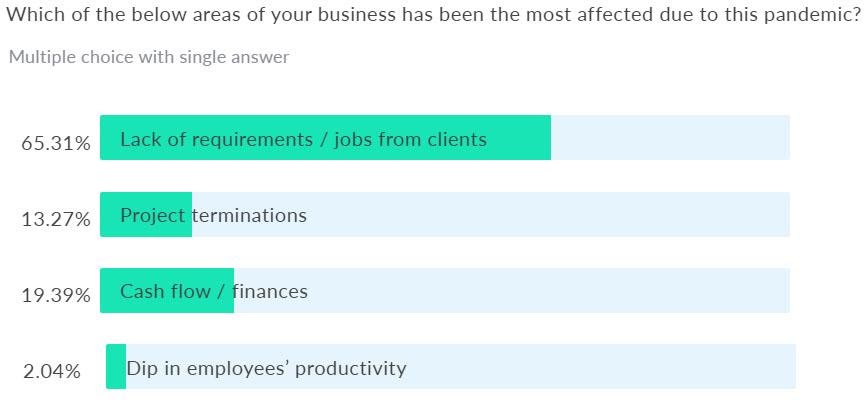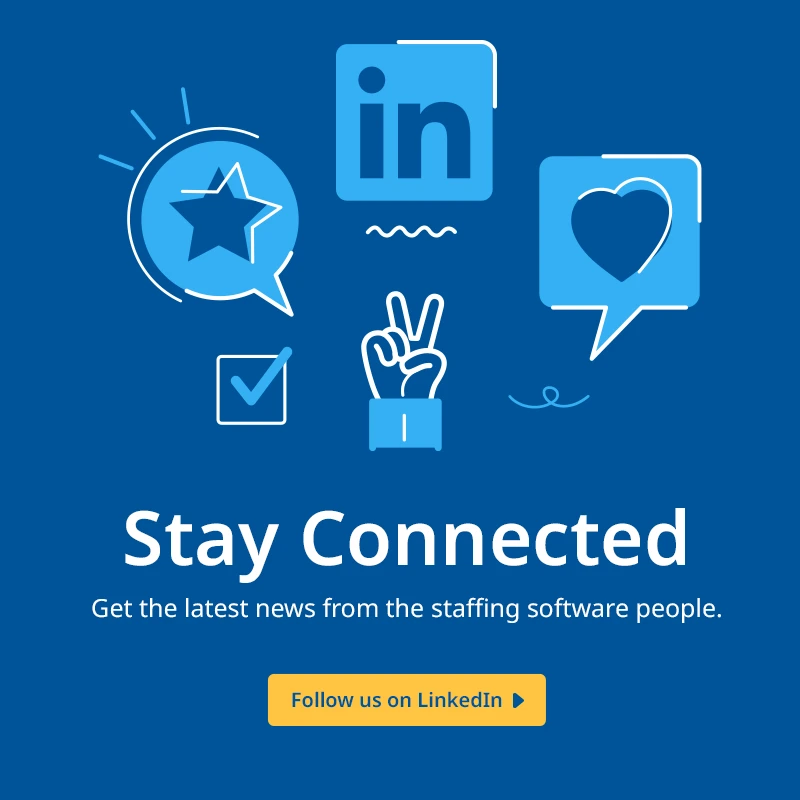This article was originally published on July 11, 2020 in RecTec Media. Find the original publication here.
In a recent webinar series, we invited industry leaders to take a deep-dive into the overall impact that COVID-19 has had on the staffing industry. In doing so, we were able to uncover some great perspectives from our panel of experts throughout the conversations. Our panel members included executive leadership from Randstad India, Quess Corp, Whitridge Associates, SoftWorld, PERSOLKELLY, and other notable industry voices that brought unique – and sometimes divergent – points of view to the discussion. Throughout our combined series, we had over 1,500 attendees that added to the conversation with follow-up questions on their concerns and day-to-day operations, ultimately bringing certain trends and concepts within the staffing industry into sharp focus.
To start, we asked all our attendees a simple question: when do you believe your business will fully recover from the COVID-19 disruption? The answers we received were ultimately optimistic: a full two-thirds believe it will happen within three to six months. The rest of our poll respondents were evenly divided between “one year” and “uncertain.”

Next, we asked our audience of industry experts their thoughts on which areas of business were most affected by this pandemic. We asked this question throughout our webinar series, and the responses were eye-opening. Approximately two-thirds of our participants indicated that the lack of job requirements & jobs from clients was the most affected area. The next most popular responses were overall finances (~19%) and project terminations (~13%). This underscores the severe struggles that staffing companies around the globe have endured through the COVID-19 crisis. The resulting losses must be addressed directly and honestly if our industry is to stage a healthy recovery. So, perhaps most importantly, we asked our panelists to share their thoughts on the possible ways that staffing companies can “bounce back” and whether they can return to the way business used to be.

The ensuing discussion revealed some painful complexities surrounding the path to a new normal. The recovery of business has two factors. Externally, there is, of course, the economy (specific to industry), which is mostly beyond our direct control. Internally, there’s the process of bringing employees back into the workplace in a safe, appropriate manner. These challenges are still a hot topic today, as some believe things will return to normal soon, while many others believe that many of the changes we’re seeing now are here for good and will result in a new way of doing business. But when it comes down to it, everyone’s “new normal” can be very different.
Most of our panelists believe the way an organization defines its “new normal” will ultimately determine how quickly it’s able to recover. Of course, there are some things beyond our immediate control, such as the impact of COVID-19 on your current clientele. Your mix of business and industry largely determines how hard you’ve been hit. For example, you will see e-commerce, healthcare, and pharma recover a lot more quickly than hospitality. For this reason, you need to stay flexible. The quickest path to recovery for many will include adapting and quickly shifting toward new sources of revenue. This might mean changing core business practices, retooling business models, updating cost models, and finding new resources to start activating recovery plans quickly.
Firms that sit back and wait for the hardest hit industries to begin hiring again or hoping for the old normal to return will struggle mightily.
Some industries have a lot of pent-up demand and say that if you are agile and flexible, the opportunities are still out there even now. While the economic realities of the current pandemic have certainly created a challenging environment for our industry, it’s reassuring to hear from so many staffing experts that there’s a light at the end of the tunnel.
Here’s hoping that we’re on the express train to the tunnel’s exit!
Click here for the full recording of the webinar.







